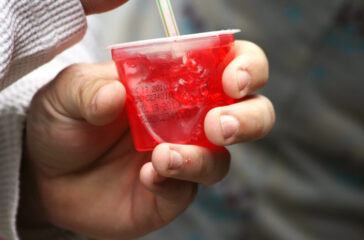Nearly 20% of US packaged foods contain synthetic dyes, study finds
By Brian Bienkowski
Nearly 20% of packaged foods and drinks in the US have synthetic dyes, with most marketed to children and loaded with sugar, according to a new study that examined nearly 40,000 items from popular food brands.
 EWG
EWG



